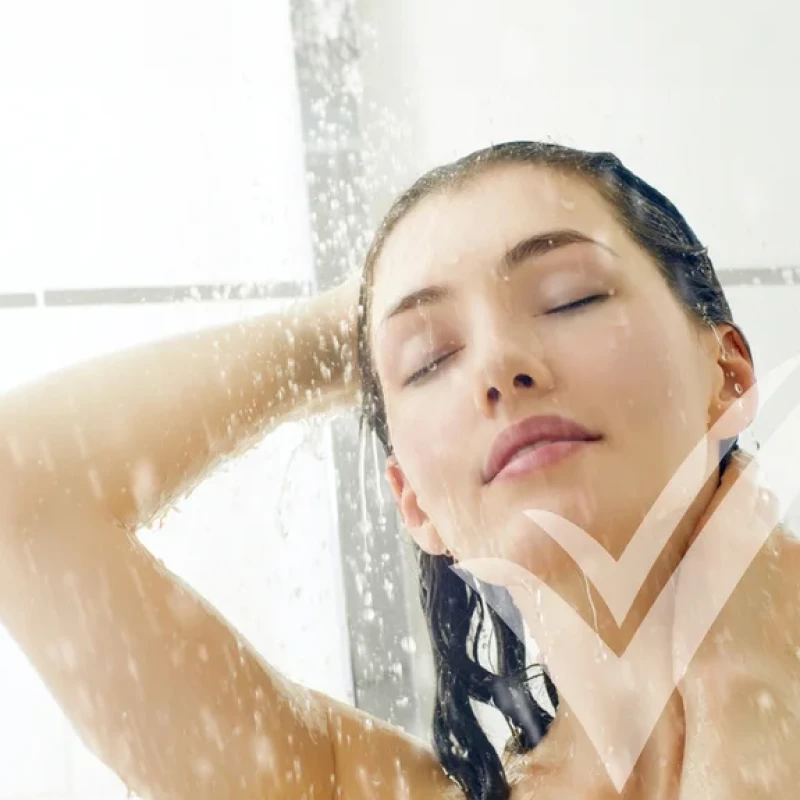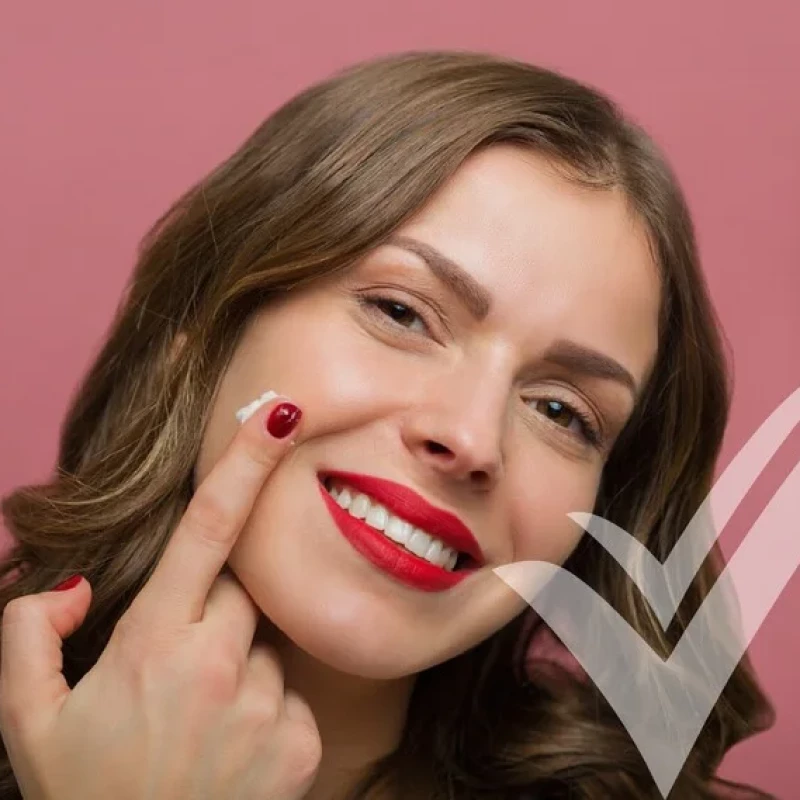Best way to treat rosacea redness :
Rosacea is a chronic skin disorder that affects the external appearance of the skin. It causes the skin in the middle of the face to appear to be red in color, specifically the nose, cheeks, and forehead, as the condition progresses the redness becomes more pronounced, and the blood vessels appear clearly as if they are branched and broken. However, the appearance of Rosacea is not limited to the skin of the face but may affect the chest, ears, neck, or scalp, and if it is left untreated, the matter may exacerbate the appearance of solid red bumps and pus-filled blisters.
This condition is also characterized by the appearance of the nose in a condition known as Rhinophyma (a description of the shape of the nose that becomes red and swollen), and it does not stop there. Uncontrolled cases of Rosacea may include the eyes, as it may be affected and become irritated and watery, so those with this condition, face a challenge in how to deal with it, and how to relieve it. In this blog, we intend to discuss this matter and help you take better care of your Rosacea.
Is there a direct cause for Rosacea?
Until this moment, the exact and specific cause of Rosacea is still not discovered by the scientists, but it was linked to a group of factors that affect the blood vessels in the face, as some scientists believe that it is due to the presence of a disorder affecting blood vessels, which causes redness of the face. Scientists also believe that exposure to the sun's rays causes damage to these vessels represented by the expansion of blood vessels, and the loss of elastic tissues in the skin of its elasticity. In addition to this belief, doctors shed light on genes that may be inherited and are responsible for this condition, but the gene that causes it has not been discovered yet
In addition to these beliefs, some groups may be more susceptible to rosacea than others, and these groups include the following:
- Females.
- Those over the age of thirty.
- Having thin skin that is easily affected by the sun's rays.
- Smokers.
Are there triggers for Rosacea?
Yes, some triggers increase the severity of facial redness in the case of rosacea, including the following:
- Consuming hot drinks.
- Very hot weather.
- Prolonged exposure to sun or wind.
- Emotional and psychological state.
- Use of drugs that expand blood vessels, such as antihypertensive drugs.
- Use of irritant types of cosmetics.
- Drinking alcohol.
- Physical exercise.
- Consuming spices and/or spicy foods.
- Humidity.
- Drinking caffeinated beverages, such as tea and coffee.
- Consuming dairy products.
What are the medical treatments for Rosacea?
A group of medical treatment options is available for Rosacea. The principle of its work is to reduce the severity of the symptoms for those affected by it. The choice of the appropriate treatment depends on the severity of the condition, as simple cases do not require any treatment if the patient adapts properly to it, but some cases may need a combination of treatment methods to obtain the desired results, below we list a few medical treatment options:
- Topical treatments:
The doctor prescribes some antibiotics such as Metronidazole, or he may resort to Azelaic acid, because of their ability to control redness of the skin and skin lesions, in addition to using both of them separately. The doctor may prescribe both together to control the condition.
However, the treatment is not limited to these medications, as there are other topical treatments such as sodium sulfacetamide to reduce inflammation and other types of topical antibiotics. - Vitamin C:
Recent studies have shown beneficial effects of topical vitamin Cpreparations on the condition of Rosacea, it is thought that the objective and subjective improvement is due to the anti-inflammatory and antioxidant properties of vitamin C. one particular study showed a significant reduction of Erythema (redness) caused by Rosacea. - Oral antibiotics:
These are prescribed for moderately severe cases of Rosacea. Examples include Tetracycline, Doxycycline, and Minocycline to reduce the chances of inflammation. - Medical treatments:
These treatments are performed in specialized clinics, such as; laser therapy and light therapy, as these treatments reduce the swelling of blood vessels in the affected area, which improves the appearance of the skin for people with Rosacea.
What are the tips that could reduce the severity of Rosacea?
Everyone is looking for home remedies and tips to alleviate the symptoms of rosacea, as we mentioned earlier avoiding the triggers of this condition has a huge effect on reducing the severity, in addition to the importance of following a healthy pattern of skincare, here we highlight the most important tips that help support the medical treatments to relieve Rosacea:
- Avoid scratching or touching the face.
- Wash the face and clean it with safe non-irritant cleansers, it is highly important to pay extra attention to the ingredient list to avoid any possible irritation or sensitivity.
- Maintain a high level of hydration, and moisture of the skin.
- Use sunscreens of at least 30 SPF when exposed to the sun and reapply them every two hours.
- Avoid using over-the-counter topical steroid products.
Sources:
- “Rosacea: Causes, Symptoms, Treatment & Prevention.” Cleveland Clinic, my.clevelandclinic.org/health/diseases/12174-rosacea-adult-acne. Johnson, Shannon. “Rosacea: Types, Causes, and Remedies.” Healthline, Healthline Media, 1 Oct. 2019, www.healthline.com/health/skin/rosacea.
- “Rosacea: Treatments, Types, Causes, and Symptoms.” Medical News Today, MediLexicon International,
www.medicalnewstoday.com/articles/160281. - “Rosacea Symptoms and Treatments.” Symptoms & Treatments - Illnesses & Conditions | NHS Inform, www.nhsinform.scot/illnesses-and-conditions/skin-hair-and-nails/rosacea.
- “Rosacea.” Mayo Clinic, Mayo Foundation for Medical Education and Research, 6 Sept. 2019, www.mayoclinic.org/diseases-conditions/rosacea/symptoms-causes/syc-20353815. Cohen, Aaron F, and Jeffrey D Tiemstra. “Diagnosis and Treatment of Rosacea.” American Board of Family Medicine, American Board of Family Medicine, 1 May 2002, www.jabfm.org/content/15/3/214.short.


